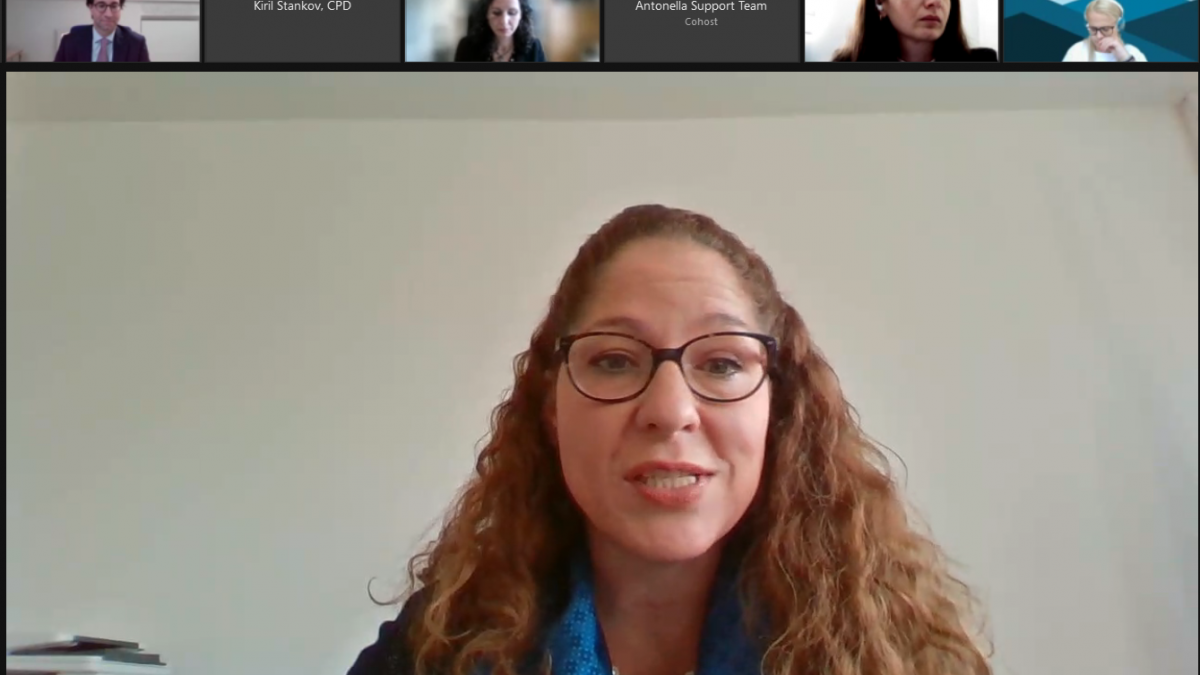The event focused on the strategic use of the Charter in concrete cases of dealing with human rights violations or combating inequality.
In cooperation with the European Network of Equality Bodies (Equinet) and the European Network of National Human Rights Institutions (ENNHRI), the EU Agency for Fundamental Rights (FRA) hosted on 20 – 22 October 2021 a virtual seminar focusing on the role of the EU Charter of Fundamental Rights in the work of Equality Bodies and National Human Rights Institutions. FRA’s Director Michael O’Flaherty, ENNHRI Secretary-General Debbie Kohner and Tena Šimonović Einwalter, Ombudswoman of the Republic of Croatia and Equinet Executive Board Member opened the event.
“The Charter represents the key human rights instrument in the European Union. Thus, it is important for both the legal and other human rights experts as well as the citizens to be acquainted with its provisions and the possibilities of their implementation in the concrete, everyday instances of potential human rights violations. That is the only way to harness its full potential,” said Ombudswoman Šimonović Einwalter.
The three-day seminar consisted of four modules, the first of which dealt with the application of the Charter at both the European as well as the national levels, with a focus on the case law of the EU Court of Justice and the practical facets of the Charter’s implementation, explaining the roles of the various stakeholders as detailed in the EU Strategy to Strengthen the Application of the Charter adopted in 2020 and the related Council conclusions on strengthening the application of the Charter of Fundamental Rights in the European Union. The module included a session on EU funds and the potential of the new horizontal enabling condition (i.e. tying the use of the EU funds to the condition of respecting the rule of law, the democratic principles and fundamental rights in the previous financial cycle), to which Deputy Ombudswoman Tatjana Vlašić contributed with her overview of the Croatian NHRI/NEB experiences of rendering the use of the EU funds under the new financial framework dependent on upholding equality as part of the use of the funds in the previous financing period. “As a part of our work on anti-discrimination ex-ante conditionality we managed to raise awareness of the Antidiscrimination Act as a part of the training offered to civil servants working on EU funds,” stressed Deputy Ombudswoman Vlašić.
The second module focused on the application of the Charter in combating discrimination and inequality and the interconnections of its provisions and the existing EU antidiscrimination legislation, while its practical part dealt with the implementation of the Charter in strategic litigation and the case law of the EU Court of Justice. The third module functioned as a quick interactive training for NHRIs and NEBs on the use of the Charter in their everyday work, whereas the fourth module zeroed in on the Charter’s implementation to respond to the various challenges in the area of the rule of law, especially those related to judiciary independence.
The seminar specifically targeted CSOs, NHRIs, NEBs and other human rights defenders that play a key role in ensuring the protection of all rights enshrined in the Charter, as stressed in the Strategy to Strengthen the Application of the Charter. They provide their contribution working in areas as various as providing advice, working on complaints, providing support for the victims and the vulnerable groups, educational activities, human rights promotion and public awareness raising, while at the same time being key partners to the national governments and parliaments in protecting the rights enshrined in the Charter.


